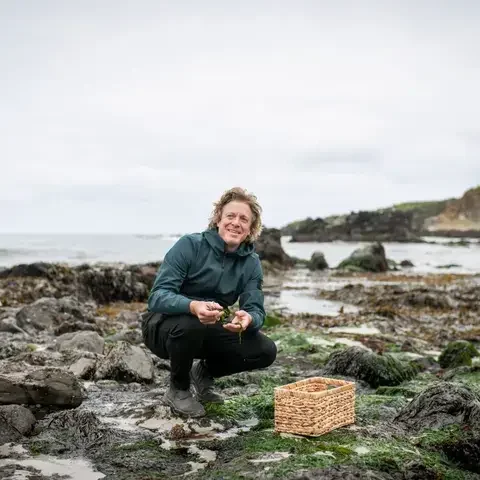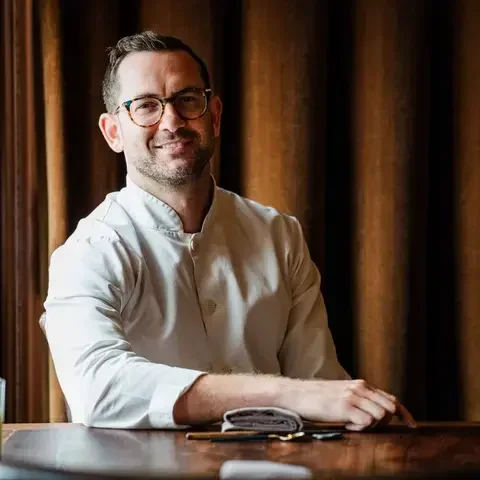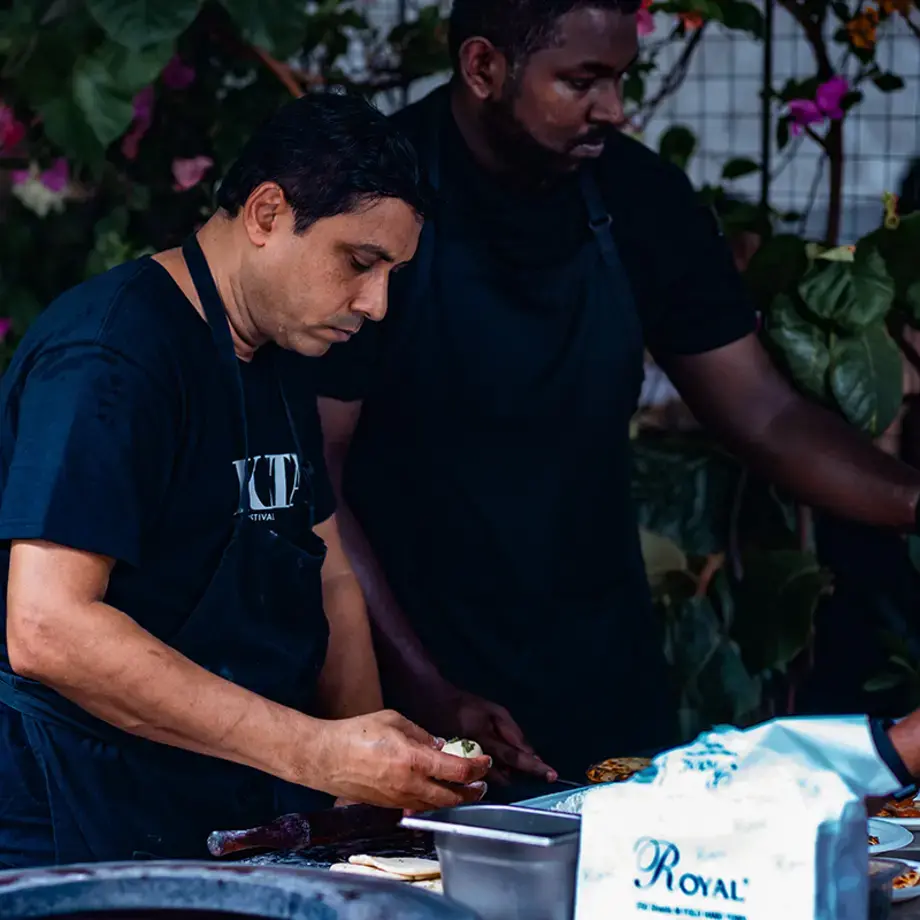
Ulf Svane
Spora is leading the way in delicious meat alternatives
I'm at Spora headquarters, mesmerized by a habitat of leafcutter ants marching steadfastly with fresh leaf fragments to nourish the fungus growing within their colony. “The ants do not eat the fungus, but rather the secretion from the fungus,” explains Spora CEO Mette Johnsen. “It's a beautiful example of symbiosis.” The ants and the fungus depend on each other for survival, serving as a poignant reminder that we humans are also interconnected with our planet, an important variable in the complex equation for the Earth's delicate ecosystem.
Johnsen oversees a team of 10 in the former Amass location just a couple of blocks from Alchemist restaurant in Copenhagen. The industrial space combines a scientific laboratory and gastronomic kitchen in a unique research facility, which grew out of the R&D kitchen at Alchemist, where chef Rasmus Munk and his team are serving 52 diners a night what may be the most memorable and meaningful meal of their lives, challenging perceptions of what food can be. For example, one of the 50 “impressions” during my recent experience was a freeze-dried lab-grown tortoiseshell butterfly served on a crisp spinach and kale chip, a comment on the possibility of insects, including alluring butterflies, as a sustainable protein source. At Spora, Munk and Johnson's mission is to use gastronomy to change the food system on a global scale, using their nimble creative potential as a force for good beyond the restaurant.
“Restaurants are creating so much knowledge and innovation but we are not supported in the same way by governments as the other arts,” Munk says. Considering how broken our current global food systems are and if Hippocrates was right about food being medicine, isn't finding solutions to address these trillion-dollar costs to health and society embedded in our current food economies as worthy and commendable as finding a cure for cancer?

Spora CEO Mette Johnsen. Photo by Jon Angelo Gjetting
Since officially opening last year, Spora has contributed to scientific papers and has patents pending, working on diverse projects with a common goal of creating delicious, healthy, and sustainable food in a way that's also scalable. Many projects focus on finding innovative uses for existing byproducts, whether cacao husks from chocolate making, spent grains from breweries, or the rapeseed remnants from making canola oil.
Fibrous dried rapeseed ‘cakes’ expelled after pressing canola oil are a byproduct that exists in abundance. Thus far, they have only been used in animal feed and biodiesel oil because the bitter compounds known as glucosinolates found in rapeseed can harm the human thyroid when consumed. However, rapeseed's impressive 30-40% protein content presents an incredible opportunity to tap into a new plant-based source of protein for humans, especially considering that it represents more than half of the protein grown in Europe.
With six months of research to perfect the flavor and texture, Spora determined that by fermenting the rapeseed cakes for just 24 hours, they can break down these bitter compounds so that they are no longer harmful, resulting in a tastier and healthier plant-based protein. It's a clean and pure protein source with a short ingredient list: rapeseed cake, plant proteins, starch, and a koji fermentation culture. I had a chance to try the minced fermented rapeseed in a taco during my visit, and the toothsome texture and rich umami flavor are easily tastier than many of the vegan meat alternatives currently on grocery store shelves.

Rapeseed 'cakes' from canola oil production. Photo: Daniel Jensen, 24 Copenhagen
“Food approval in Europe is the biggest hurdle for us right now,” Johnsen says. “We are working with partners that will have the ability to bring it out on the market in large scale.” The product currently has a shelf life of approximately five days when refrigerated, and Johnsen recognizes that the Spora team will need to find a way to better stabilize the fermented rapeseed cake and achieve a longer shelf life to make the product accessible to the mass market.
“We are in the process of producing data to form the basis for the [food approval] application,” Johnsen says. “All and all we expect this and the application process to take around one or two years.” While the rapeseed cakes have not appeared on the menu at Alchemist (yet), the R+D kitchen has also made grilled skewers, energy bars, and a vegan version of Bolognese with it, in addition to the flatbread taco I tasted.
“My biggest hope is that products made from rapeseed press cake will become available across Europe and Canada, the regions where most of the rapeseed is cultivated right now,” Johnsen says. “My goal is that we create a delicious, affordable product that customers will choose because it is delicious in its own right, and not just as a substitute for meat. I would use it fried together with vegetables in a taco or pita bread at home with the kids. For a dinner with friends, I would make grilled farce-skewers, glaze them with teriyaki sauce, and serve them with leafy greens and a mustardy sauce also incorporating fermented rapeseed, giving the dish tons of flavor.”

Rapeseed fermentation. Photo: Daniel Jensen, 24 Copenhagen
Munk is most excited about this project as well. “To finally be able to use the full potential of one of Europe’s largest crops would be quite amazing,” he says. “Just to think that we could potentially cover the protein needs of 700 million people with this one innovation is pretty mind-boggling. Compared to a lot of other plant proteins already on the market, I think that the texture and flavor we can create from the press cake will lend itself to creating delicious dishes quite easily, using techniques that we already have at home, and I hope that we can find a partner with the capacity to scale it up once the product is ready to launch.”
For now, Spora is not open to the public, but as a futuristic rendering on the wall attests, Munk and Johnsen hope to build an even larger state-of-the-art research center next to Alchemist. Perhaps in the future, diners will have an opportunity to more fully realize how elements of dinner at Alchemist and the ongoing research at Spora are intertwined in their own symbiosis.










